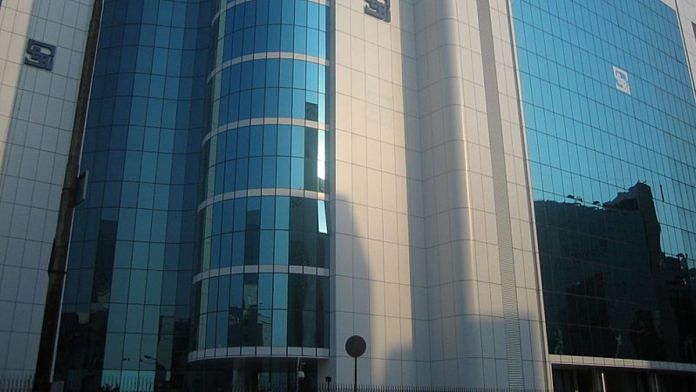
Thank you dear subscribers, we are overwhelmed with your response.
Your Turn is a unique section from ThePrint featuring points of view from its subscribers. If you are a subscriber, have a point of view, please send it to us. If not, do subscribe here: https://theprint.in/subscribe/
From the recent land-for-jobs scam by Lalu Prasad Yadav & Family suggests that there is huge demand for public sector jobs (aka government jobs) even when the overall benefits don’t match up to private sector jobs. Before economic liberalization more than ninety percent of the jobs in India were in public sector, but post liberalization its share in overall jobs has gone down steadily and its appeal has been diminishing among young, urban and upwardly mobile individuals.
However demand for public sector jobs exceeds supply due to two main reasons, private sector jobs haven’t reached small towns & villages in required numbers and persistence of high unemployment even after significant improvements in economy and human development index (HDI). Since many urban and middle class Indians have moved on from public sector jobs the next level of social strata grabbed those opportunities and benefitted from the vacancies. For various social groups, government jobs still holds a lot of prestige and offers life altering opportunities.
Many rural households along with their extended families through concentrated efforts try to get one family member a government job for sense for safety and stability. Due to the above mentioned factors and advantages, you often hear headlines in various national newspapers saying thousands and sometimes lakhs of applications received for a handful of openings.
Other than the above mentioned perks one of the most important and probably the paramount factor in demand for public sector jobs is the guarantee of lifetime employment, no private sector company cam promise that. The reason for this assurance is that public sector companies never go bankrupt and have unlimited supply of money from public coffers, in vast majority of cases additional money is made available to loss making PSU’s due to political compulsions.
As detailed above the benefits in these jobs make them lucrative for potential job seekers who bend over backwards, pay bribes and in some cases do unpaid work for political organizations in return of job assurances. This situation is also a plotline in 1996 Tamil movie “Indian” by S. Shankar, where the lead character played by Kamal Hassan is exploited by a senior government official in lure of a job. The above mentioned example is one of many, in other cases ruling party functionaries extract huge amount of money from job seekers as they have contacts within government.
Political party functionaries who extract money use it for political activities, in others words it can be said that political contributions swell for a party which is in government at that time. To avoid bribery and exploitation of citizens by power corridors it is time to introduce performance review and appraisal for government employees where each individual is evaluated annually by their manager using measurable parameters. The logic with this policy is simple, if employees understand that their job is not guaranteed for life and continuation of employment is based on their own performance then the means of getting the job will autocorrect.
Along with that when a potential job seeker understands that his/her job is not guaranteed even after paying bribes then power brokers who demand bribes and favors in return for securing a job will lose leverage over them. The incumbent central government once spoke about introducing performance review and appraisal with much fanfare, but since then they haven’t followed up with concrete rules and procedures towards it. Another unpleasant and undesirable outcome of having state and central governments owned corporations is that quality of the products decline over time as there is no incentive for employees to innovate and improve the products they offer.
With competition from private players in this space post liberalization led to PSU corporations incurring losses year-over-year and drying up of capital, which directly effects employee salaries and upkeep of company infrastructure. This leads to government investing more money to keep the company afloat and continues the viscous cycle of borrowing from public through taxes and paying salaries in perpetuity. This entire problem can be summed up by a quote from Union Transport Minister Nitin Gadkari “Jiska Raja Vyapari, uski janta bhikari” (When government runs corporations, its people are in shambles).
The problem is much worse in civil administration as they don’t have any direct competition from private sector and they are the sole provider of those specific services. Government employees at multiple organizations and levels are also notorious for groupings and caste discrimination, to avoid it performance review policy should have safeguards against discrimination to avoid vestiges of caste politics creeping in at various levels of non-political organizations. If properly implemented this will lead to betterment of services provided by civil administration to its citizens and gradual reduction in this aspect of corruption.
These pieces are being published as they have been received – they have not been edited/fact-checked by ThePrint.

COMMENTS